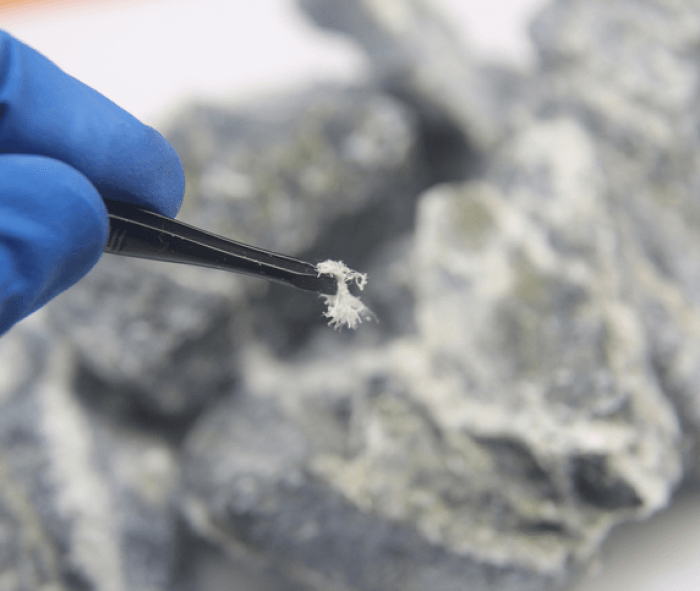Get A Free Legal Consultation
- We fight to maximize your results
- Many clients get results in as few as 90 days
- No out-of-pocket costs for you or your family






Stage 1 pleural mesothelioma is the earliest stage of this deadly cancer. It’s the easiest stage to treat as the cancer hasn’t spread, but most patients aren’t diagnosed this early.
If you or a loved one has been diagnosed with mesothelioma stage 1, Simmons Hanly Conroy can help you pursue compensation for medical care and more.
Call (800) 326-8900 now to see if our team can help you after a mesothelioma diagnosis.


Stage 1 is the first stage of malignant pleural mesothelioma, an aggressive cancer that develops in the lining of the lungs (pleura).
According to the TNM (Tumor-Node-Metastasis) staging system, there are two substages of stage 1 pleural mesothelioma:
Other types of mesothelioma don’t have official staging systems. Instead, doctors can see how far tumors have spread and classify the cancers as localized or advanced, with localized being similar to stage 1 or 2.
In this stage, the cancer has not spread or metastasized to distant organs or nearby lymph nodes, so the cancer is still considered to be local.


Stage 1 mesothelioma is caused by exposure to asbestos. When asbestos products are used or disturbed, microscopic fibers are released into the air, where they can be inhaled or ingested.
However, these fibers don’t break down in the body. Instead, they get trapped in the lining of certain organs, like the lungs. Over the years, the fibers irritate healthy tissue and eventually cause cancer cells to develop.
No matter which stage of this cancer you have, Simmons Hanly Conroy is here to help. As a national mesothelioma law firm, we may be able to help you pursue justice and compensation from the companies responsible for your cancer.
Learn more about your options now with a free legal consultation.
Pleural mesothelioma patients may experience little to no symptoms in stage 1. Asbestos-related cancers like mesothelioma take 10-50 years before first developing or showing signs.
Common stage 1 pleural mesothelioma symptoms include:
Stage 2 mesothelioma patients usually have the same or similar symptoms as stage 1 patients.
Because stages 1 and 2 are both early-stage mesothelioma, the cancer hasn’t spread far, limiting the severity of symptoms.
Stages 3 and 4 are late stages of mesothelioma. By these stages, the cancer has started to spread beyond where it first began, which causes more noticeable symptoms than stage 1 cases.
Signs and symptoms of advanced-stage mesothelioma may include:
Whichever stage of mesothelioma you have, our team can help you find cancer centers nearby and pursue compensation for your medical care.
Call (800) 326-8900 now to learn more. There’s no cost to contact us.
Pleural mesothelioma stage 1 life expectancy is generally 21 months, according to a Frontiers in Oncology report, though this can vary greatly.
Your life expectancy with stage 1 mesothelioma can be affected by factors like:
Early diagnosis and treatment may be able to improve your mesothelioma stage 1 life expectancy and prognosis (overall health outlook).
If you worked with asbestos and are now feeling unwell, tell your doctor. They can order the appropriate tests to determine if you have mesothelioma.


The survival rate is the percentage of people with a condition who are still alive after a period of time.
Currently, the average 5-year survival rate for stage 1 mesothelioma is around 24%, according to the American Cancer Society.
However, the mesothelioma survival rate at stage 1 varies based on several factors, such as overall health, age and treatment plans.
Stage 1 mesothelioma is often discovered by accident when an oncology (cancer) doctor performs a CT scan or X-ray while diagnosing another condition. The health care team will perform a biopsy to confirm whether you have mesothelioma.
After diagnosing you, your cancer center may recommend the following treatments for mesothelioma.


Surgery is the main treatment for stage 1 pleural mesothelioma patients.
There are two main surgery options for stage 1 patients:


Chemotherapy is a type of cancer treatment that uses medication to kill cancer cells. Two of the most commonly used chemotherapy drugs for mesothelioma are pemetrexed (Alimta®) and cisplatin.
Your oncologist may also use chemotherapy before (neoadjuvant), during or after surgery (adjuvant) to kill microscopic cancer cells that weren’t removed.


Radiation therapy involves the use of energy beams that kill cancer cells. Mesothelioma doctors often use radiation therapy after surgery to prevent cancer from returning (recurrence).
Radiation therapy after P/D or EPP may boost survival times for some stage 1 patients.


Immunotherapy is a kind of stage 1 mesothelioma treatment that helps your immune system fight cancer.
There are several types of immunotherapy for treating mesothelioma cancer:
Some of these immunotherapy treatments are widely available while others can only be accessed through trials.


If none of the above treatments are working, you may want to consider joining clinical trials or research studies that test experimental therapies and drugs.
Clinical trials can give you access to emerging stage 1 mesothelioma treatments, such as photodynamic therapy and gene therapy. Talk to mesothelioma specialists to learn more about your options.
Treatment for mesothelioma, even in its earliest stages, can amount to over $400,000 a year.
Call (800) 326-8900 now to see if you qualify for compensation that can help cover these costs.
As a national mesothelioma law firm with over 20 years of experience, Simmons Hanly Conroy is committed to fight for justice on behalf of asbestos exposure victims and their families.
Our experienced team of mesothelioma lawyers can help clients in all 50 states seek compensation from the asbestos companies responsible for their illness.
We’ve recovered more than $9.3 billion for mesothelioma clients across the country.
Call (800) 326-8900 now for a free legal consultation to see if our mesothelioma lawyers can help your family.


Art Putt received a pleural mesothelioma diagnosis decades after working as a car mechanic. During his work, Art regularly inhaled dust that was released from brakes that contained asbestos.
Following his diagnosis, Art pursued treatments like chemotherapy and immunotherapy as well as natural remedies to help him live longer.
“Originally, the doctor said he would have possibly six months to a year.”
– Jan, Art’s Wife
Art and his wife Jan also reached out to Simmons Hanly Conroy for help securing justice and compensation from companies that used asbestos and put Art’s life at risk.
“What our lawyer did for us made our financial situation a whole lot better. We gave all that money to our kids, paid our house off, made our life a little easier. We’ve got no financial worries.”
– Art, Mesothelioma Survivor & Firm Client
Diagnosed in 2018, Art is still leading a happy and fulfilling life today with his wife Jan by his side.


Stage 1 pleural mesothelioma has the best prognosis of all mesothelioma types. Patients with stage 1 mesothelioma typically live for an average of 21 months, according to a Frontiers in Oncology report.
However, this number can vary dramatically, depending on a patient’s overall health at diagnosis, age, lifestyle and other factors.
Like other stages of mesothelioma, stage 1 mesothelioma is not curable. However, some patients with stage 1 mesothelioma may experience long-term remission (disappearance of cancer signs and symptoms) with early diagnosis and treatment.
For stage 1 mesothelioma or localized stages, the 5-year survival rate is around 24%, according to the American Cancer Society.
However, it’s possible to live for many years or even decades after a stage 1 mesothelioma diagnosis in some cases, depending on the individual and the treatments they receive.
The beginning stages of mesothelioma are:
The later stages of mesothelioma consist of:
Not technically. There is no official staging system for peritoneal mesothelioma.
However, doctors may classify this type of mesothelioma as: